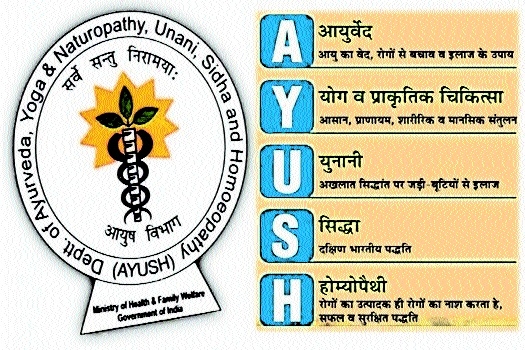AYUSH forms own Essential List of Drugs
| Date :16-Mar-2020 |

By Rajendra Diwe :
THE World Health Organisation (WHO) has defined essential medicines as those that satisfy the priority health care needs of the population. WHO has set the criteria for selection of essential medicines on the basis of disease prevalence and public health relevance, evidence of clinical efficacy and safety, and comparative costs and cost-effectiveness. Many countries have their own model lists of essential medicines, but all these lists are confined to modern medicines or allopathic medicines. On the same lines, India has developed model lists of essential medicines for Ayurveda, Unani, Siddha and Homoeopathy systems. The credit of developing the model lists goes to the Ministry of AYUSH (Ayurveda, Yoga and Naturopathy, Unani, Siddha and Homoeopathy).
The first Model List of Essential Medicines was released by WHO in 1977 and it has been updated every two years since then. As per the recommendations of WHO, India had also released a model list of essential medicines in 1996 and has been updated in 2003, 2011 and 2015. The Ministry of AYUSH was formed on November 9, 2014 to ensure optimal development and propagation of AYUSH systems of health care. Earlier it was known as the Department of Indian System of Medicine and Homeopathy (ISM&H) which was created in March 1995 and renamed as Department of Ayurveda, Yoga and Naturopathy, Unani, Siddha and Homoeopathy (AYUSH) in November 2003, with focused attention for development of Education and Research in Ayurveda, Yoga and Naturopathy, Unani, Siddha and Homoeopathy.
Preparation of Essential Drug List (EDL) has been considered as a great achievement of the Ministry. EDL has been prepared by the Department of Ayush separately for Ayurveda, Unani, Siddha and Homeopathic medicines. There are 277 essential medicines in Essential Drug List of Ayurveda, 257 medicines in Homoeopathy, 302 medicines in Siddha and 288 essential medicines in Unani system of medicine. According to e-pharmail of AIDAN, Dr. Amritpal Singh, a consultant of AYUSH had explained utility of essential drug list for Ayush industry as well as consultants in the country.
“The Ayush department undertook a year-long exercise to review the lists of essential Ayurveda, Siddha, Unani and Homoeopathic drugs published in the year 2000 and in the process interacted with various stakeholders, including representatives from the fraternity of in-service practitioners, Ayush department officers and procurement authorities from Central and state government organisations,” Dr Amritpal Singh stated. Comprehensive essential Ayurveda, Unani, Siddha and Homeopathic drug lists presently drawn with cross sectional consultation offers wide choice for need-based selection of generic medicines. “The Essential Drug List is mandatory in all systems of medicine and is part and parcel of the World Health Organization (WHO) policy. Essential Drug List of traditional medicines is integral part of the WHO policy for traditional medicines,” he added.
Requirement of Essential Drug List Essential Drug List incorporates information on ingredients with quantity, disease indication, dose and vehicle for Ayurvedic formulations. The pattern of information presented in the Essential Drug List is typical for Ayurvedic formulations. The publication of the official document related to Essential Drug List for Ayurveda is a welcome and timely step for the Ayurvedic drug industry. The document is available on the official website of the Department of Ayush and can be downloaded from the link www.ayush.gov.in. The Ayurvedic drug industry is highly unorganised sector. Keeping in mind the vast number of crude herbal/natural drugs used in designing formulations, it is not easy to cultivate and procure each and every crude drug. To meet the daily requirements, the Ayurvedic drug manufacturers use adulterants in designing formulations. Essential Drug List of Ayurveda should be made compulsory document so as to ensure genuine manufacturing of classical Ayurvedic formulations. Adoption of the Essential Drug List by the industry can play a significant role in establishing provisions of the Drug and Cosmetic Act applicable to traditional/ayurvedic medicines. Recently, the department of Ayush has made several amendments in the Drug and Cosmetic Act so as to enhance the acceptability and credibility of Ayush among masses. If the Essential Drug List is made legal document for the Ayush industry, it can help in curbing malpractices being adopted by the substandard pharmacies for promotional purposes. Many pharmacies are claiming cure for incurable diseases and this is a gross violation of the provisions of the Objectionable Advertisement Act.
